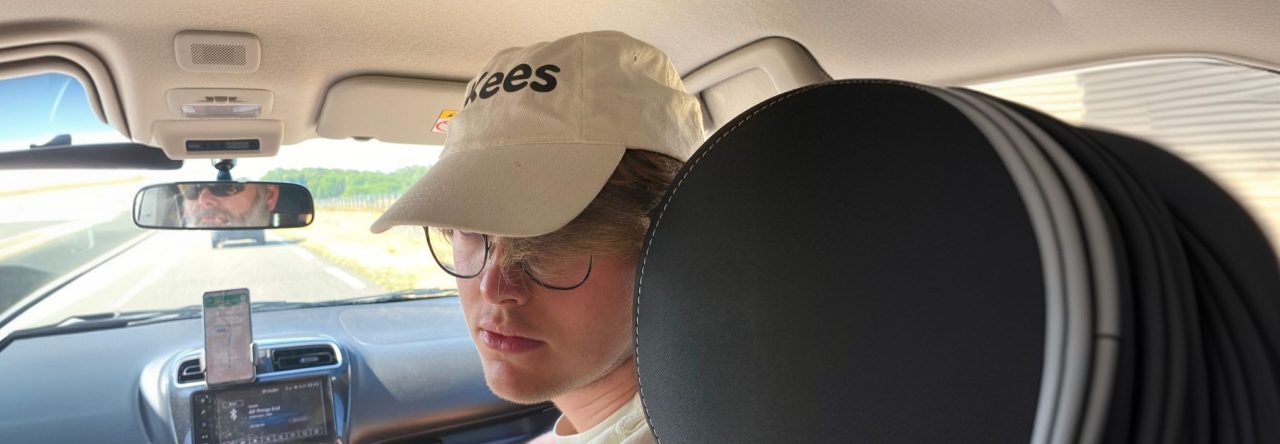I’ve been a nomad for about three years now.
The first two of those were lonely.
Just working online by myself. I didn’t meet anyone doing anything similar to me, and I didn’t have colleagues.
I didn’t get the benefits of being a nomad and having so much freedom, I mostly got the downsides.
But the last year, this has changed drastically.
I’ve had an awesome community, and a fantastic group of friends.
Lived in a mountain cabin in Japan with them, visited each other in Europe, and lived the US suburban life together for a while.
This last year of being a nomad has been simply amazing. And I wanted to share what made this year different from the previous 2 lonely years.
So here we go:
1. I moved to a place where there are other nomads.
This was a big one for me.
And it’s the reason why I first moved to Bali.
It’s the place where so many digital nomads hang out.
And after just living two months there, I met so many different people doing similar stuff as me.
Built a great friend group.
And with that friend group, I’ve gone on to travel the world.
So yeah, the first important thing for me was to put myself in a place where I am around other nomads.
Even when I did not expect to like the place itself so much.
I initially wasn’t super excited about Bali because I knew it was very touristic and stuff.
But just because of the community and the people I met, it was very worth it.
2. Choose wisely where you work from and hang around.
I noticed that for me, there are two different options here.
Co-working spaces
I’ve been to more than 20 different co-working spaces by now, and I found out what sets the good ones apart from the bad ones.
The best co-working spaces have both these two specific things:
- It needs to have a dedicated focus area where it’s quiet, where people actually get work done.
- It needs a dedicated chill space — like a café or lounge — where people are just hanging out.
Because if a co-working space doesn’t have both, you never know who to talk to.
There’s very little place to really get work done.
And there’s way less of a community feel without a hangout spot.
If co-working is out of budget, cafés can work too.
This is what I did when moving to New York City, where good co-workings are crazy expensive.
I just chose a café with nice working spaces, and committed to it. Work from the same place every day.
And every time I meet somebody at an event or something, I just invited them to come co-work at this café with me one day.
This compounds over time to create my little community at that café.
Because I kept going back, I built relationships with the people that worked there.
They got to know me. And they loved that I bring new people in.
Everyone that came to co-work had a good experience and often came back.
All-in-all, a fantastic way to create my own little coworking-like community.
3. Actually spend time making sure you have a community.
Simple and obvious, but this is something that I found easy to skip on.
Arriving in a new place, getting into my routine — workout, work, maybe go out a bit — and just see who I meet.
But this never works. When moving to a new place, you have to take initiative.
Actively decide: how are you gonna build a social life?
What I always do is super simple.
Every Sunday, I take half an hour to reflect:
- How was my social life this past week?
- What can I do this upcoming week?
Then I just text some friends, text people I’ve met, and make some plans.
And that’s it.
It’s done, no effort during the rest of the week, and you’ve got a few nice social activities lined up.
And as a bonus tip:
(One that I still want to improve on)
Be the one that organizes events.
If I know three different people in a city and they haven’t met yet, just try and plan something.
Like renting a car, doing a little road trip, or grabbing dinner and inviting them all.
I’ve noticed that when doing this, slowly a friend group starts forming.
Especially because building a friend group is quite hard, and it’s more common to meet people 1-on-1 all the time. I want to do more organizing and bringing people together in the future.
It’s a fantastic way to build a friend group, and meet cool people.
To summarize:
- Move to a place where there are like-minded people
- Create a great work environment, through coworkings or cafés
- Take initiative to build a social life
- Be the one to organize events
That’s what’s worked for me.
Do with it what you will.
Even if this helps just 1 person avoid their first nomad years feeling lonely, like I did. Then that’s a win.
